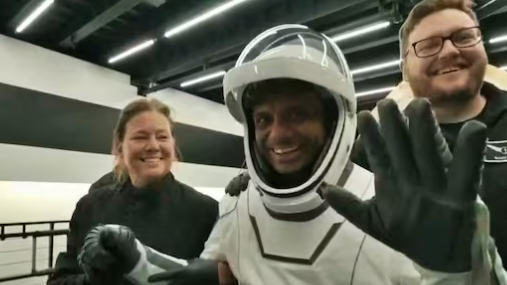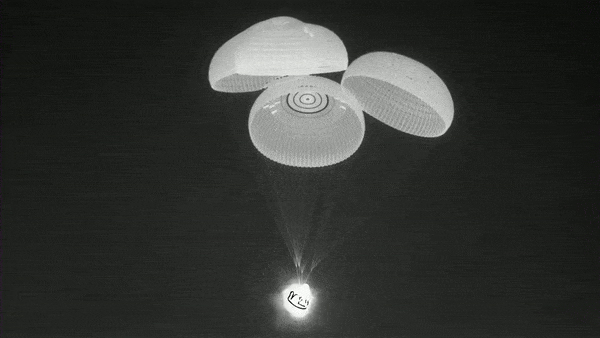

A sonic boom over California heralded the return of a national hero. Group Captain Shubhanshu Shukla, India’s first astronaut to live and work aboard the International Space Station (ISS), safely splashed down in the Pacific Ocean on Tuesday. His return concluded a historic 18-day mission. This journey marks a pivotal moment for India's ambitions in space.

Shukla’s voyage aboard the SpaceX Dragon spacecraft, part of the Axiom-4 mission, was more than just a trip to orbit. It was a critical test run. He is now only the second Indian to travel to space, following Rakesh Sharma’s flight in 1984. His mission provided the Indian Space Research Organisation (ISRO) with essential, hands-on experience. This knowledge is vital for the country's own upcoming human spaceflight program, Gaganyaan.
The journey home was a demanding one. After undocking from the ISS, Shukla and his international crewmates endured a nearly 22-hour trip. They faced extreme heat and gravitational forces as their capsule re-entered Earth’s atmosphere at over 27,000 km/h. The successful parachute deployment ensured a gentle landing in the ocean, bringing a collective sigh of relief across India.
During his time in space, Shukla was deeply involved in important scientific research. He participated in global experiments in biology, materials science, and artificial intelligence. One key project involved studying plant growth in microgravity, which could help make future space farming possible. He also worked on studies related to muscle degeneration and autonomous robotics. This research has benefits for both future astronauts and people on Earth. His crew commander, veteran astronaut Peggy Whitson, praised his professionalism and skill throughout the mission.
The true value of this mission lies in its connection to Gaganyaan. ISRO invested approximately ₹550 crore to support Shukla’s flight. The agency treated it as a crucial training opportunity. For the first time in four decades, Indian flight surgeons, engineers, and mission planners monitored and supported an astronaut in space. They gained practical insights into everything from crew health to emergency procedures.
This direct experience is something that cannot be learned from simulations alone. The post-flight rehabilitation program, for instance, will directly shape the medical plans for future Indian astronauts. The experiments Shukla conducted, many with Indian-led teams, also bolster the nation's scientific capabilities for future space stations.
Shubhanshu Shukla’s safe return is the conclusion of a landmark chapter. It broke new ground and set records. More importantly, it has laid a solid foundation for the next generation of Indian space exploration, turning a long-held national dream into a tangible reality.